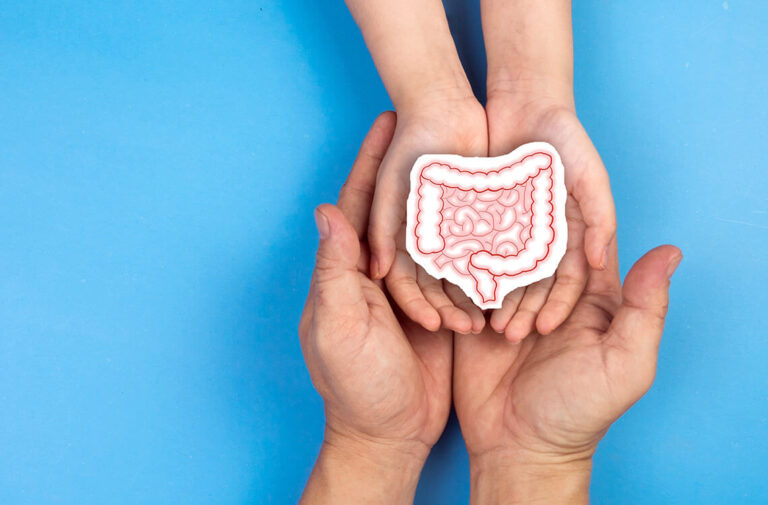Colitis in dogs is one of the health issues that your canine family member could be prone to at some point in his life. While this disease is deemed common among dogs, there is still a possibility that it could result in more severe consequences without immediate and proper care and attention.
But the thing is that going for “conventional” medicine isn’t just your only option when it comes to supporting your pooch during colitis in dogs. In a few moments, I’ll share with you a few home remedies that will help you deal with this health problem.
So how about we start things off by finding out what exactly colitis in dogs is?
What is colitis in dogs?
Dog colitis occurs when the colon becomes irritated and eventually gets inflamed. While all dogs are prone to having this condition regardless of age and sex, studies show that it may be more prevalent in certain breeds such as the Miniature schnauzer, French bulldog, German Shepherd, and the Boxer.
Besides drawing in nutrients from digested food as well as keeping electrolyte and fluid levels in check, your dog’s colon also acts as a temporary storage area for fecal matter before it gets expelled from his body.
When your canine family member is afflicted with colitis in dogs, he can be susceptible to gastric pain and discomfort, not to mention difficulty in moving his bowels and bouts of diarrhea in some instances.
However, there is a possibility that your dog could be in for more serious or even fatal adverse effects if this health issue is shrugged off.
Apart from being at risk of developing peritonitis or the acute inflammation of his abdominal cavity’s internal membrane, severe cases of colitis in dogs can also result in sepsis or the immune system’s extreme response to infection that can potentially lead to organ failure and even death.
Next, let’s touch on the classifications of dog colitis…
What are the classifications of colitis in dogs?
There are two (2) distinct classifications of canine colitis, namely short-term colitis in dogs and chronic colitis in dogs. The former refers to cases where this health issue only lingers from 3 days up to a week, while the latter pertains to those that last for more than a couple of weeks.
Although short-term colitis in dogs is usually deemed as the “mild” variant of canine colitis, your pet’s likelihood of being prone to the more serious adverse effects of this disease—such as sepsis and peritonitis—is often attributed to its chronic counterpart.
Now we’ve got that covered, let’s talk about the different kinds of colitis in dogs…
What are the types of dog colitis?
Interestingly, the term “colitis in dogs” is very broad and can relate to different types of canine colitis, particularly eosinophilic colitis, granulomatous colitis, lymphocytic-plasmacytic colitis, as well as neutrophilic colitis.
While the symptoms may be the same, what distinguishes one from the other is the type of cell that breaches the colon and triggers inflammation. Let’s examine each one in detail below:
Eosinophilic colitis
Considered as a rarer form of colitis in dogs, eosinophilic colitis is characterized by the sudden influx of white blood cells called eosinophil in and around the colon.
Although eosinophil cells inherently trap parasites, bacteria, and minute foreign substances that infiltrate the gastrointestinal tract, having too many of them at once tends to cause irritation and inflammation to the colon.
Granulomatous colitis
Also referred to as Crohn’s disease, granulomatous colitis takes place when shallow yet scattered ulcers develop in the large intestines and the colon.
These ulcers tend to get deeper over time, which result in the scarring and hardening of the bowels. If left untreated or neglected, these ulcers can possibly result in the infection of nearby organs such as the rectum, cecum, and the anal canal.
Additionally, granulomatous colitis in dogs is considered as a non-curable type of canine colitis.
Lymphocytic-plasmacytic colitis
As regards lymphocytic-plasmacytic colitis, it occurs when the colon’s epithelium experiences an unexpected accumulation of lymphocytes.
While lymphocytic-plasmacytic colitis triggers irritation to the colon, the damage it sets off does not become so severe that it already results in bleeding. Lymphocytic-plasmacytic colitis is also deemed as a non-curable type of canine colitis.
Neutrophilic colitis
Neutrophilic colitis is characterized by either the accumulation or infiltration of the white blood cell called neutrophil in the colon.
Neutrophils comprise the largest number of white blood cells in your dog’s body and they are mainly responsible for catching and digesting unwanted visitors like fungi, bacteria, and parasites, which can cause sickness.
However, akin to other types of colitis, excessive numbers of neutrophils in the colon lead to irritation and inflammation of the same.
At this point of our discussion, let me walk you through the possible causes of colitis in dogs…
What causes colitis in dogs?
Although there still isn’t a determined exact cause of dog colitis, the following are regarded as the possible factors that give rise to this health issue:
Immune response to food-related allergies
When your dog’s body is allergic to a certain kind of foodstuff, say chicken or dairy products, his immune system “tags” it so his white blood cells get into action whenever he ingests the same.
While getting rid of bacteria, parasites, viruses, as well as compounds and chemicals that cause allergic reactions are the main function of your dog’s immune system, there will be times when this natural defense mechanism goes on overdrive.
And when this happens, your pet’s colon and large intestine can get irritated and eventually become inflamed, which results in colitis.
Trauma or injury that may have affected the colon
Significant trauma or injury, particularly affecting the abdominal region, can lead to more than just nicks, cuts, and similar superficial consequences. If the damage is rather substantial, it can also trigger your dog’s body’s immune response to become overexcited.
This potentially results in the irritation of the bowels and can have a detrimental effect to the colon, leading to the onset of colitis, if it persists in the span of a few days.
Bacterial, viral, or parasitic infection
At its simplest, various types of white blood cells make up your canine family member’s immune defense system.
Besides trapping and getting rid of unwanted visitors like bacteria, viruses, and parasites, they also ensure that infections caused by the same are either immediately broken off or prevented altogether.
However, there will be times when your dog’s immune system sends too much of these white blood cells at a given time. This will cause rather a counterproductive effect on the part of the body that they’re trying to protect.
And if these unwanted visitors have somehow made their way into the colon when these surplus of white blood cells occurs, it is highly like that your dog could be prone to colitis.
Autoimmune disorders
An autoimmune disorder is characterized by a dog’s immune system’s inability to distinguish the difference between cells that it should protect from those that it should do away with. An example of this condition is systemic lupus erythematosus (SLE).
When this condition takes place, your pet’s immune system will target even healthy and friendly cells in his body. And your canine family member could be at risk of colitis if this mix-up happens in his colon.
Ingestion of foreign objects
As a temporary storage area for fecal matter, the colon can be prone to various issues when foreign objects like pieces of plastic, crayons, and small pebbles that cannot be easily digested—or not at all—end up inside it.
When this happens, the colon gets overworked and may become vulnerable to becoming irritated and inflamed, which may lead to a case of colitis in some instances.
Excessive stress and anxiety
While this may sound surprising, your canine family member’s hormones that regulate certain physiological functions (e.g. gastrin, motilin, and cholecystokinin) can become unruly when he is going through excessive levels of stress and anxiety.
And one of these bodily functions include digestion and bowel movement, which the colon plays a key role in.
If this surge or dip in hormones persists, it could result in a disruption of the overall digestive process and may trigger certain adverse effects like stomach upsets, constipation, as well as colitis.
Being in close and constant contact with a dog suffering from colitis
Interestingly, colitis in dogs can be transmitted from one pooch to another, especially when the cause of the same is set off by a bacterial or viral infection.
So it is likely that if a dog suffering from this condition is in close contact with another healthy dog on a regular basis, it is likely that the latter could be prone to developing the condition sooner or later.
However, it is important to take note that canine colitis triggered by an autoimmune disorder is not transmissible in any way at all.
Now we’ve finished listing down the possible causes of colitis in dogs, let’s touch on the indicators of this condition that you need to keep an eye on…
Symptoms of colitis in dogs
Here are the symptoms of dog colitis that you should take note of:
If you observe that your canine family member is exhibiting three (3) or more of these indicators of colitis in dogs, chances are he is suffering from this condition.
Giving him immediate and proper care and attention is crucial to prevent this health issue from getting worse. And while we’re on the subject, let’s next discuss the natural remedies that you can go for when it comes to properly dealing with this health issue…
How to treat colitis in dogs naturally
Contrary to what a lot of people mistakenly think, “conventional” medicines are not just your only recourse as regards supporting your pet when he is going through colitis in dogs.
Below are the natural remedies that you should include in your dog home care checklist if this health problem gets in the picture:
Apple cider vinegar helps keep colon inflammation at bay.
Medical News Today reports that apple cider vinegar contains natural chemicals and compounds that have the ability to suppress “proteins and molecular processes that trigger inflammation” in the colon.
To use apple cider vinegar to treat colitis in dogs, thoroughly mix in half a teaspoon of the same with his water. It is crucial to remember that his water bowl should be full during this application so the acidity won’t be overwhelming for your pet.
Give this mixture to your canine family member intermittently and switch to plain water as soon as he finishes an apple cider vinegar-laced bowl. Moreover, make sure you don’t administer apple cider vinegar to your pet undiluted since it is highly acidic and can lead to stomach or digestive issues before you know it.
Calendula helps boost the colon’s resilience against oxidative stress.
Also known as the common marigold, holligold, ruddles, and gold bloom, the National Center for Biotechnology Information (NCBI) shares that calendula is abundant in triterpenoids, saponins, as well as flavonoids that act as barriers for tissues against oxidative stress.
Research shows that when these organic chemicals and compounds reach the colon, they induce the “formation of superoxide dismutase and catalase,” which help keep inflammation at bay.
To use calendula to treat colitis in dogs, steep a few dried flowers in hot water for at least ten (10) minutes until the liquid takes on an amber hue. Let the mixture cool down completely. You can use this calendula tea as a water substitute for your canine family member.
In an alternative application, you can soak dried calendula flowers in cool water overnight to infuse it with its triterpenoids, saponins, and flavonoids. Carefully strain the mixture and give it to your pooch as a healthy thirst-quencher.
Chamomile helps keep the gastrointestinal tract stay in good shape.
According to another study published in the NCBI, chamomile tea has been seen to have a wide range of beneficial effects against oxidative stress that can trigger the onset of inflammation, including gastrointestinal disorders and ulcerative colitis.
The said study’s proponents also highlighted that chamomile exhibited hepatoprotective, antidepressant, antidiarrheal, antimicrobial, and even antidiabetic effects.
To use chamomile to treat colitis in dogs, steep a handful of its dried blossoms in hot water for at least fifteen (15) minutes to extract its beneficial components. Let the whole thing cool down completely before administering it to your pet.
You can give this mixture to your dog as a water substitute or as a natural after meal colon cleanser and relaxer. Make sure you refrigerate the unused portion to prevent the organic chemicals and compounds it contains from breaking down.
Fenugreek is a refreshing treat and colon health food in one package.
As reported by another study in the NCBI, fenugreek contains a type of saponin called diosgenin that has been found to “suppress ovalbumin-induced intestinal allergic reaction” as well as inhibit the onset of gut inflammation and reduce the frequency of diarrhea.
To use fenugreek to treat colitis in dogs, soak half a teaspoon of its seeds in water overnight and mix them with your canine family member’s food. You may also directly use dried fenugreek seeds for this application, but they could be a bit stringy for your pet to chew on.
Ginger promotes improved colon function and health.
According to BioMedCentral (BMC), ginger has been seen to significantly alleviate the adverse effects of colitis by improving the colon’s overall wellness and resilience against substances that may interfere with its digestive functions.
To use ginger to treat colitis in dogs, peel and grate a thumb-sized piece and directly add the same with your pet’s food. Make sure you thoroughly mix the whole thing before serving to keep your pet from eating the grated ginger straight, which can be a bit spicy.
As an alternative application, you can also steep a few slivers of ginger in warm water for a few minutes and give it to your dog as a water substitute.
Peppermint helps relieve gastrointestinal pain and discomfort.
A study published in the NCBI highlighted that natural oils extracted from peppermint have been seen to help alleviate the pain and discomfort brought about by the symptoms of irritable bowel syndrome (IBS) and colitis.
To use peppermint to treat colitis in dogs, bruise the leaves in a container and let them soak in warm water for at least ten (10) minutes. Give a teaspoon of this liquid to your canine family member every after meal.
You can also use the leaves to make peppermint tea as an alternative application and give it to your pet as a water substitute. However, under no circumstances that you give your pet peppermint essential oil since this can be toxic to his body.
Saffron: a proven colitis fighter.
A different study in the NCBI reveals that saffron contained abundant amounts of a natural chemical called crocin, which significantly reduced the levels of pro-inflammatory cytokines and inducible inflammatory enzymes like TNF-α, IL-1β, and IL-6 when absorbed by the body.
The researchers even stressed that aside from helping prevent colitis, the crocin in saffron can be also used to alleviate inflammation-associated colon carcinogenesis.
To use saffron to treat colitis in dogs, add in a very small amount of this fragrant spice to your pet’s food. For practicality, always keep in mind that a little goes a long way when it comes to saffron so you don’t have to use a lot for this application.
Slippery elm bark soothes the gastrointestinal tract.
According to the Mount Sinai’s health library, the inner bark of the slippery elm contains a natural substance called mucilage that has the ability to lubricate the digestive tract when ingested with water.
This lubricating action not only helps stimulate the nerve endings in the gastrointestinal tract so it won’t be as vulnerable to inflammation, but also helps promote the secretion of mucus to alleviate any pain or discomfort that can arise during colitis.
To use slippery elm bark to treat colitis in dogs, finely grind the inner bark and let it steep in cool water for at least ten (10) minutes. You can then mix a small amount of this hydrated bark with your pet’s food or use the infused water as a substitute for his regular drinking water.
Turmeric helps hasten colitis recovery.
The NCBI reports that turmeric’s curcumin content has a significant therapeutic effect when administered during the onset of colitis. Curcumin has also been observed to help do away with the usual symptoms of canine colitis such as constipation and stomach upsets.
To use turmeric to treat colitis in dogs, peel and grate a thumb-sized amount of turmeric and let it steep in hot water for at least ten (10) minutes. When the mixture has cooled down completely, you can use it as a water substitute for your dog.
As an alternative application, you can finely slice strips of turmeric and integrate it with your canine family member’s food. Just make sure you mix it thoroughly since turmeric’s spicy kick can be a bit overwhelming for your pet when eaten straight.
Water therapy: a no-fuss approach to get rid of colitis.
As shared by the NCBI, researchers highlight “efficient” results when individuals suffering from colitis were given increased water intakes within a three-week period. They also added that this may be due to the added lubrication in the gut that helped inhibit inflammatory risks as well staved off constipation.
To use water to treat colitis in dogs, increase the daily water intake of your canine family member by at least half. It is normal if he will be observed to urinate more often during this time.
Yogurt has gastrointestinal anti-inflammatory benefits.
A different study in the NCBI stressed that besides having probiotic benefits, yogurt also helped suppress TNF-α- and IL-12-producing monocytes that were observed to aggravate the symptoms of colitis, particularly in its earlier stages.
To use yogurt to treat colitis in dogs, add a teaspoon of this natural probiotic into your pet’s meals. It is crucial to keep in mind that you should only use plain yogurt for this application.
Now I’m going to reveal my favorite natural product when it comes to supporting your canine family member during colitis in dogs…
A high-quality and natural product for colitis in dogs you should check out
TUMMYPET is a natural and high-quality product that’s designed to not just support your pet’s gastric health, but also promote a healthy digestive system to keep gastrointestinal issues like colitis in dogs at bay.
Featuring first-rate ingredients such as Deglycyrrhizinated licorice (DGL), pistacia lentiscus, condurango, calendula, and plantain, TUMMYPET is also made with a gentle holistic approach to help give your pet the quality of life he truly deserves.
To use TUMMYPET to support your canine family member during colitis in dogs, you just have to open a single capsule and mix it with either his food or water.
Next, let’s touch on the frequently asked questions or FAQ’s regarding colitis in dogs…
How long does it take a dog to recover from colitis?
The time that it takes for a dog to recover from canine colitis heavily depends on what classification of this health issue—namely short-term colitis or chronic colitis—he is experiencing.
If your canine family member is going through short-term colitis in dogs, recovery usually takes about three (3) days to a week. The chances of recurrence are also quite unlikely.
On the other hand, if your dog is afflicted with chronic colitis, its symptoms may persist for up to two (2) weeks and may have the possibility of coming back again after some time.
Is colitis in dogs life threatening?
The short answer is it depends.
While short-term colitis in dogs may cause a bit of pain and discomfort to your canine family member, its adverse effects typically go away after a few days. However, the situation is different when it comes to chronic colitis in dogs.
Besides typically lingering for up to two (2) weeks at a time, it is highly possible that some cases of chronic canine colitis may progress into severe cases of diarrhea and irritable bowel syndrome (IBS).
Additionally, there is even a risk that a dog suffering from chronic colitis may be prone to developing peritonitis, sepsis, as well as organ failure in the long run if this health issue is either neglected or not properly monitored.
How long can dogs live with colitis?
Dogs suffering from short-term colitis won’t have a problem getting back to their normal lives after a few days since this condition rarely lasts for more than a week. The adverse effects of short-term colitis in dogs are also not that persistent and extensive compared to its chronic counterpart.
However, a dog suffering from chronic colitis can be vulnerable to considerably pervasive symptoms that may progress into more serious health issues sooner or later without the proper care and attention.
It is crucial to take note that apart from being incurable, dogs afflicted with chronic colitis also require constant monitoring and treatment due to this condition’s constantly recurring characteristic.
Can colitis in dogs cause breathing problems?
While colitis in dogs is predominantly a gastrointestinal tract-related condition, it is possible that your canine family member could be prone to breathing problems when he is afflicted by the same.
Gassiness and bloating, which can be among the symptoms of colitis in dogs, can sometimes hamper his breathing. However, it is not going to be serious in any way at all.
Is colitis painful for dogs?
The short answer is yes.
Your canine family member is going to experience varying levels of pain and discomfort during colitis in dogs brought about by its symptoms such as constipation, diarrhea, gassiness, as well as other related adverse effects of this health issue.
This is the reason why giving your dog immediate and proper support when canine colitis arises—such as administering TUMMYPET—is really important to help nip the problem in the bud and keep clear from this condition’s more problematic adverse effects.
H2 Conclusion
So that pretty much wraps up our discussion on colitis in dogs. I hope you’ve found the information that I’ve shared useful and informative to help keep your canine family member happy and healthy using natural means.
In case you’re worried about your pet being afflicted with a different health problem, make sure you sign up for our FREE HEALTH ADVISOR GUIDANCE. Besides getting tips and recommendations from our Natural Health Advisors, they will also walk you through the products and treatment options that best fit your animal’s health needs.
This content was originally published here.




















